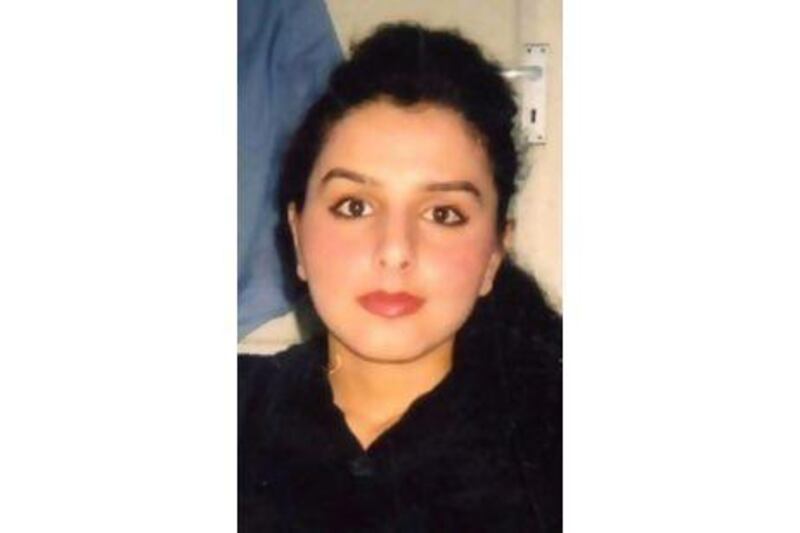LONDON // Police statistics showing a daily average of eight so-called "honour" attacks on British women last year were released by campaigners yesterday.
Figures obtained from three-quarters of Britain's police forces by the Iranian and Kurdish Women's Rights Organisation (IKWRO) under the UK's Freedom of Information Act, showed that there were nearly 3,000 such attacks recorded last year.
And police and women's groups fear that statistics for such attacks - which range from beatings and acid attacks to, in extreme cases, murder - represent just the tip of the iceberg as many more go unreported.
Jasvinder Sanghera, a spokesman for the victim support group Karma Nirvana, believes that the real figure could be four times greater with most women afraid of going to the police for fear of violent recriminations.
The figures for the attacks, which mainly affect Muslim women from south Asian, Middle Eastern and Eastern European communities, were the most accurate estimate compiled so far of the problem nationwide.
But IKWRO, a London charity, accepted that even this data, taken from 39 out of 52 UK police forces, did not present a complete picture.
"This is the first time that a national estimate has been provided in relation to reporting of honour-based violence," said the report.
"The number of incidents is significant, particularly when we consider the high levels of abuse that victims suffer before they seek help."
The report said that most attacks were punishments carried out on women deemed to have brought shame on their families. Such punishments have included abductions, mutilations, beatings and murder.
Diana Nammi, director of IKWRO, described the figures as "shocking" and called for police to be better trained.
"The problem is that there is no systematic training for police and other government forces in the UK such as social services, teachers or midwives," she told the BBC.
She said that a variety of things were considered to bring dishonour on a family, such as having an "unsuitable" boyfriend, refusing an arranged marriage and, in some cases, wearing inappropriate dress.
Ms Nammi said that families often denied the existence of the attacks.
"The perpetrators will be even considered as a hero within the community because he is the one defending the family and community's honour and reputation," she added.
Scotland Yard accepts that there is a substantial underreporting of such attacks, even in London where a record 495 incidents were investigated last year.
"It is particularly underreported, as often victims are too scared, shocked or tied by family or community loyalties to speak out," said a spokesman.
The police, however, maintain they are now doing much more to address the problem.
Commander Mak Chishty, who heads the honour violence task force of the Association of Chief Police Officers (Acpo), said: "In 2008, Acpo published a strategy that recommended consistent reporting across England and Wales. We are satisfied that this is being done. We are now in consultation on a new strategy.
"All front-line staff have received awareness training and every force has a champion on honour-based abuse. Acpo is confident that any victim who comes to us will receive the help they need."
A Home Office spokesman added: "We are determined to end honour violence and recognise the need for greater consistency on the ground to stop this indefensible practice."
Pointing out that nine out of 12 police forces who kept comparative statistics for 2009 had recorded marked increases in the number of cases last year, IKWRO's campaigns officer, Fionnuala Ni Mhurchu, said that this was probably due in part to better police awareness and to more victims coming forward after coverage of high-profile prosecutions.
But she told The Guardian newspaper that violence itself was also on the rise as young people increasingly refused to bow to their families' demands.






